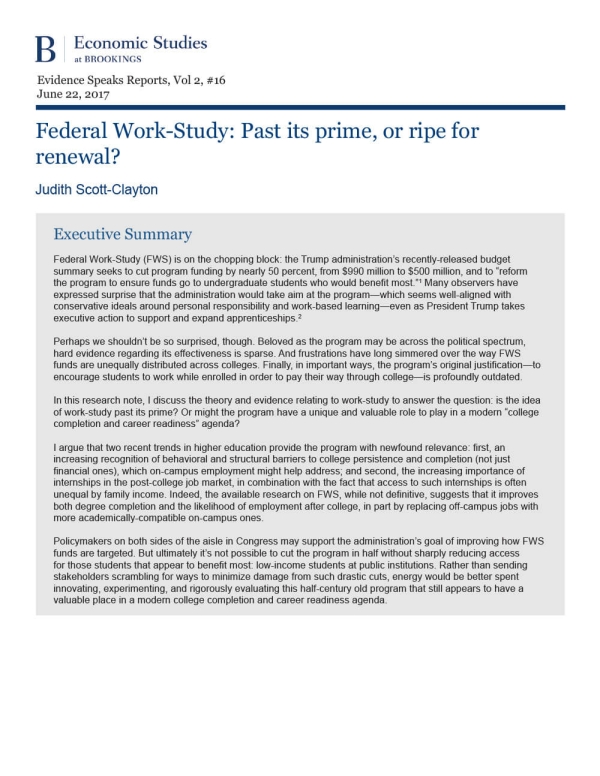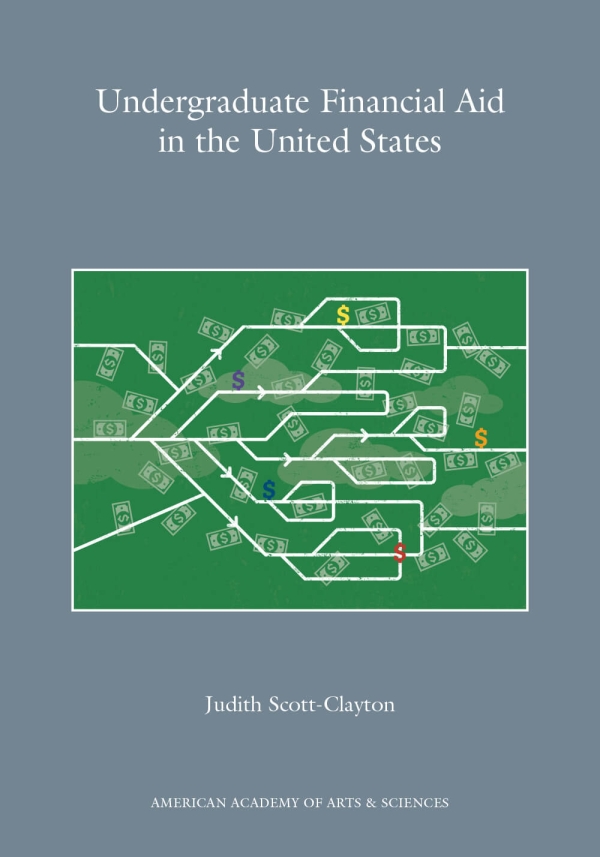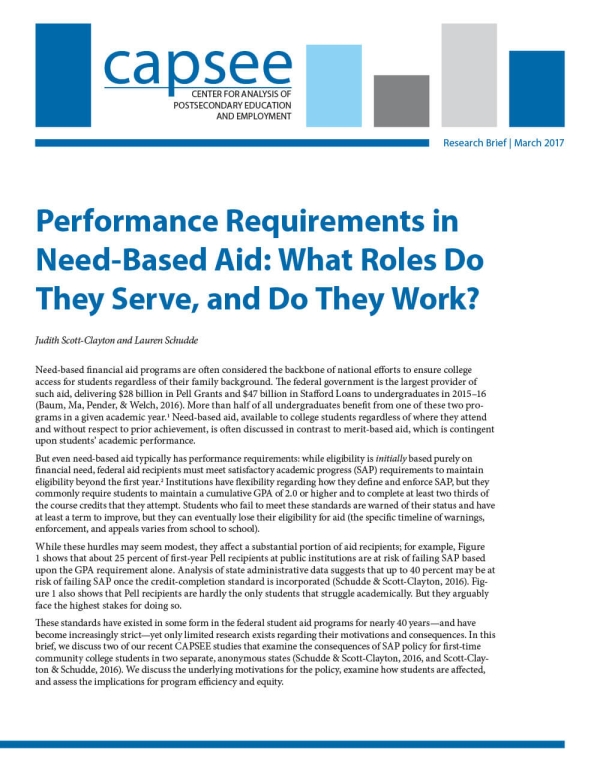Leadership for Transformative Change: Lessons From Technology-Mediated Reform in Broad-Access Colleges

This study explores the influence of different types of leadership approaches on the implementation of a technology-mediated advising reform at six colleges, and assesses which types of leadership are associated with transformative organizational change.
Colleges’ Experiences Integrating Support Services for Military Veterans

This review draws from the experiences of colleges awarded the Kisco Foundation’s Kohlberg Prize to highlight the practical and philosophical challenges involved in creating integrated services for student veterans.
Federal Work-Study: Past Its Prime, or Ripe for Renewal?

This Brookings report discusses what role the Federal Work-Study program might have in a modern “college completion and career readiness” agenda.
Undergraduate Financial Aid in the United States

This paper provides an overview of undergraduate financial aid to inform discussions of the future of undergraduate education in the United States and the role of financial aid within it.
Performance Requirements in Need-Based Aid: What Roles Do They Serve, and Do They Work?

Based on recent CAPSEE studies in two states, this brief discusses the motivations for satisfactory academic progress requirements for federal aid, examines how community college students are affected, and assesses the implications for program efficiency and equity.
